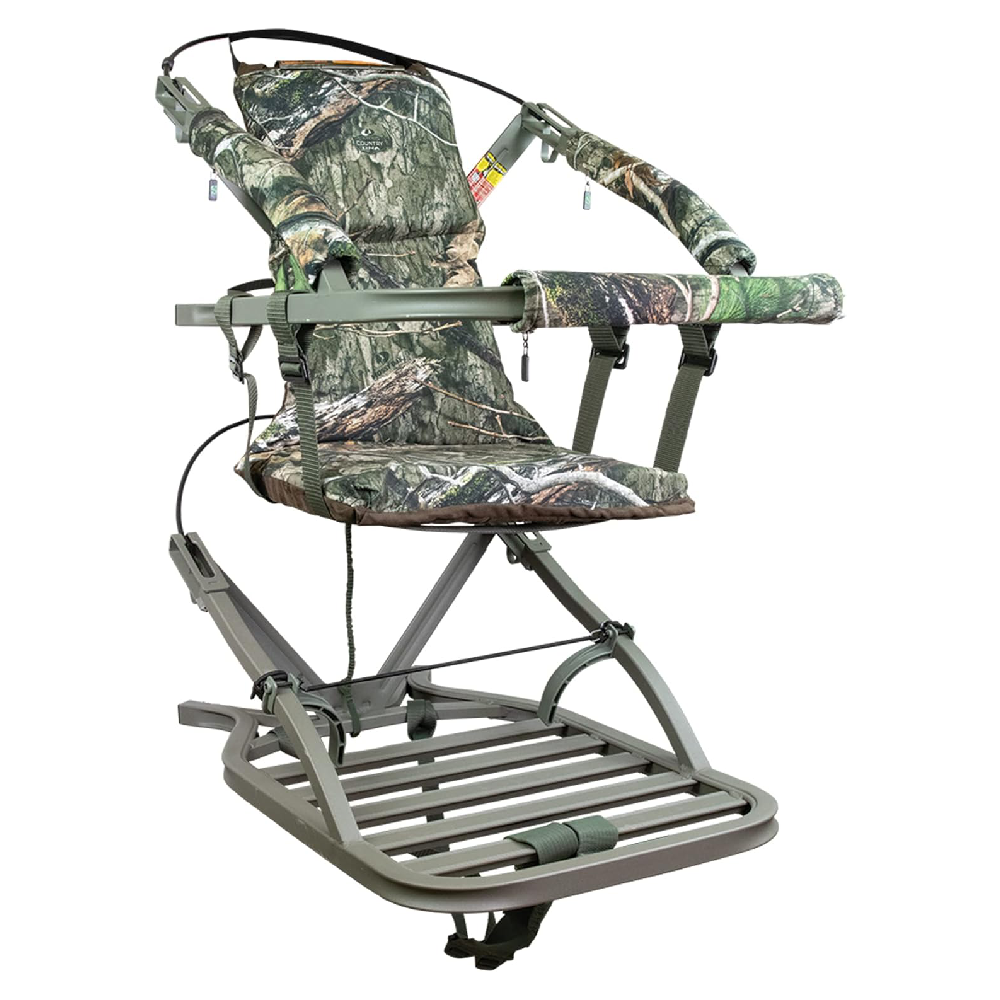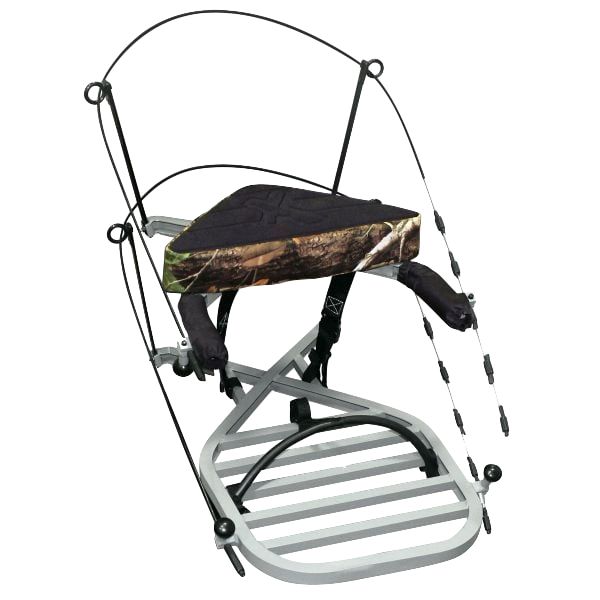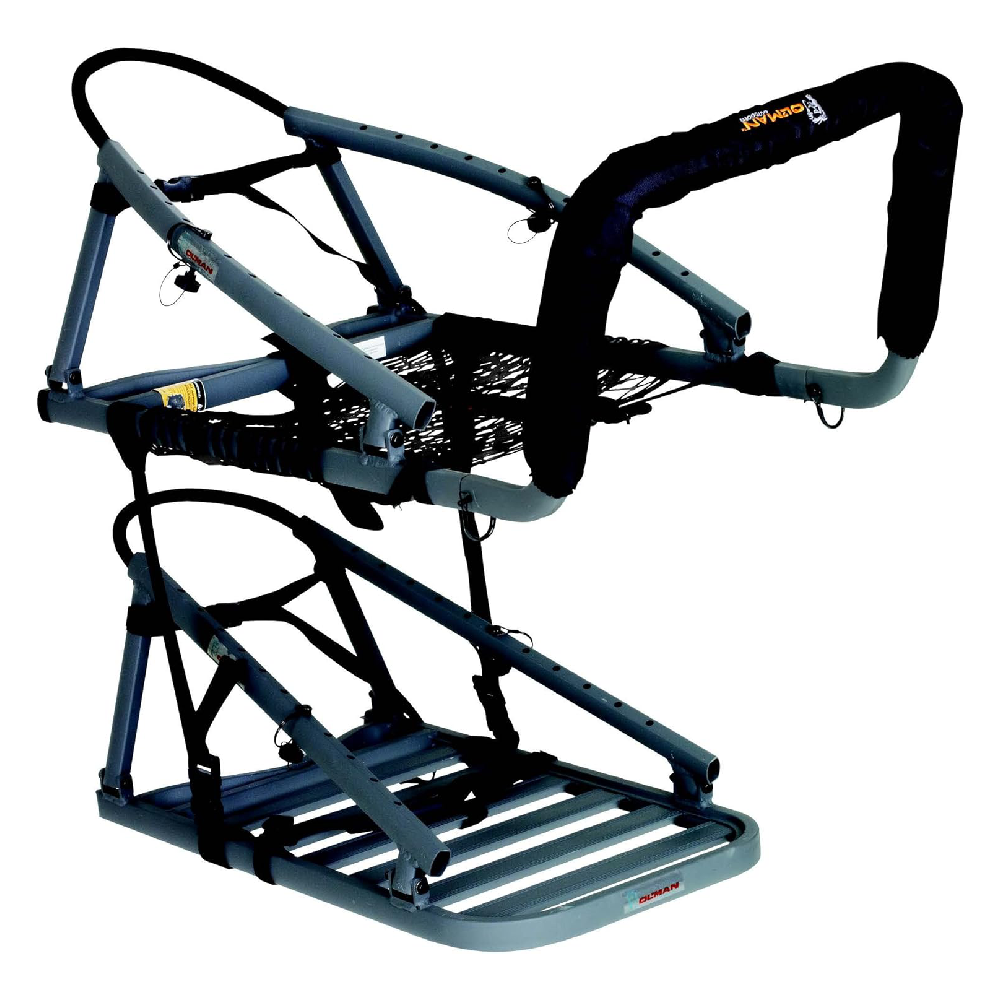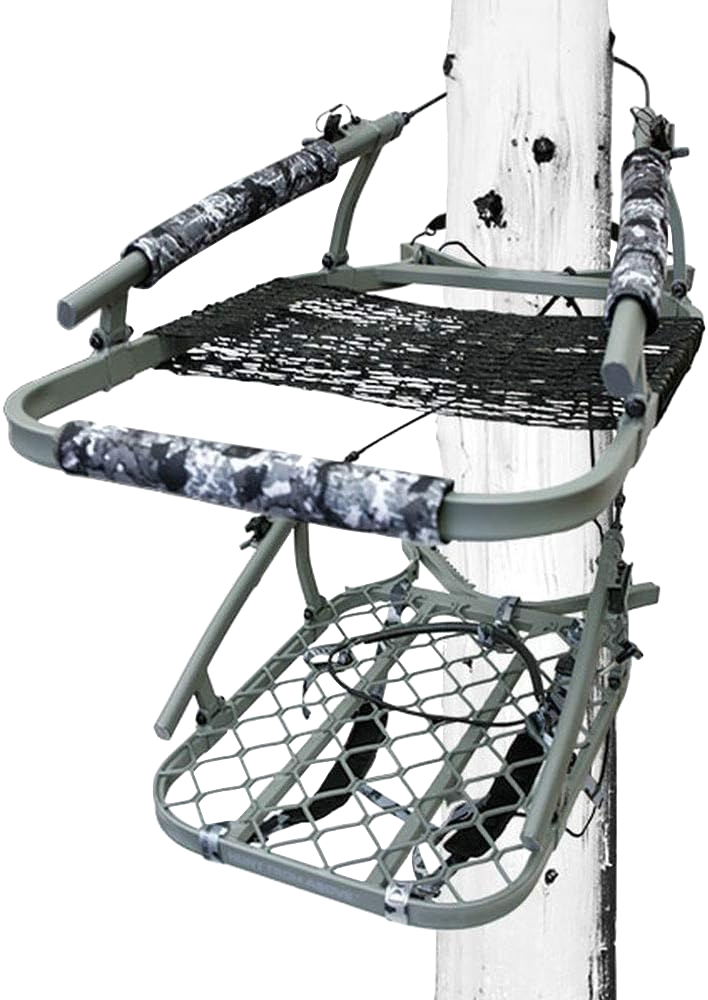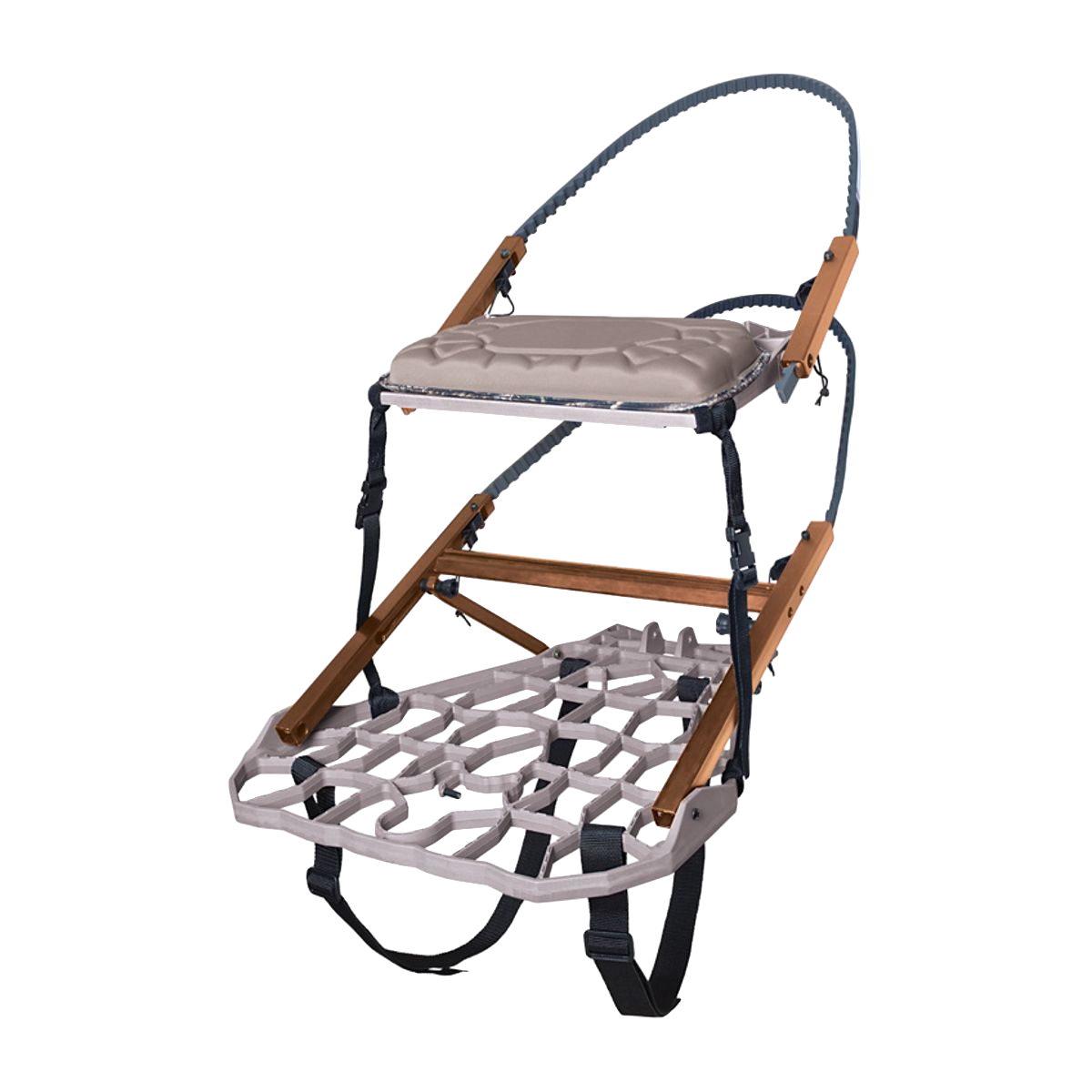Climbing tree stands are the name of the game for many deer hunters, and the best climber can help increase success. They allow you to set up on any suitable tree, in a matter of minutes. No matter how you hunt—compound bow, crossbow, or rifle—there’s a climber built for it.
As a lifelong deer hunter, I’ve had my fair share of sits from a climber. I’ve tested many different models and largely understand what brands have to offer. Weight, portability, and comfort are just a few of the important factors that determine a quality climber. Here are some of the best I've hunted from over the years.
Best Overall: Summit Viper Pro SD
Best for Rifles: Millennium Ol’Man Alumalite CTS
Best Lightweight: X-Stand Victor X-1
How We Picked the Best Climbing Tree Stands
While it’s never easy to assign awards and winners for these categories, there is a method to the madness. First and foremost, I’ve spent many days afield with a climber and I’ve used these stands quite extensively. Additionally, I look at every available climbing tree stand on the market (that I could find) and consider the specs and features of each. Some were sent to me for in-person testing and others I've used on my own.
When analyzing tree stands, I pay very close attention to weight, weight capacity, compactness, portability, railing designs, platform designs, platform size, interior dimensions, platform gripping, tree gripping, quietness, comfort, price, and more. Then I compare my notes, pick my favorites, and award category winners.
Best Overall: Summit Viper Pro SD
Specs
Weight capacity: 300 pounds
Weight: 22 pounds
Platform size: 20″x 36″
Material: Aluminum
Pros
Very quiet
Large platform sizing
Dead Metal sound-dampening technology
Cons
Slightly bulkier design
The Summit Viper Pro SD is the quietest tree stand I tested. Summit Treestand’s trademark is filling critical areas with expanding foam to reduce sound. Plus, ample coverings further decrease the chance of bumping exposed metal. Its cable system is very easy to attach and can even be locked with a cable or padlock to secure it to the tree. It checks comfort boxes with a large platform and includes a large and comfortable back and seat cushion. This model can accommodate trees ranging from 8-20 inches in diameter, and it can be fitted with accessories to hold phones, rifles, and more.
Best for Rifles: Millennium Ol’ Man Alumalite CTS
Specs
Weight capacity: 300 pounds
Weight: 21 pounds
Platform size: 18″ x 32″
Material: Aluminum
Pros
Included gun rest
Large platform
Built for bowhunters
Cons
Heavier than other climbers
As best I can tell, Millennium might be the only climbing tree stand brand that currently sells a gun rest with their climber. Others have available attachments, but this stand comes with it. It’s geared toward gun hunters. While the gun rest is a great selling point, it has other desirable features. This model from Ol’Man is a culmination of improvements from designs that came before it. Setup is very quick and easy. Its large platform and seat increase comfort and safety. The raised railing makes you feel safer and more stable when ascending and descending the tree. Again, this is a climber made for gun hunters.
Best Lightweight: X-Stand X-1
Specs
Weight capacity: 300 pounds
Weight: 13.8 pounds
Platform size: 21″ x 26″
Pros
Very compact, lightweight design
Limited contact points for reduced noise
Fits trees as small as 6 inches in diameter
Cons
Smaller seat and platform
The X-1 tree stand is an excellent climber, especially for those wanting the absolute lightest climbing stand they can buy. The primary reason this tree stand is so light is due to the patented Pro-FleX carbon composite flex arms, which move in and out, eliminating the need for a heavy bulky upper framework. While other stands just grip the back of the tree, these arms allow the cable to move inward as weight is applied, which grips the tree trunk on the sides and back. The cables move away from the trunk while climbing.
The X-1 has a 21-inch-by-26-inch platform and 19-inch-by-10-inch-by-3-inch seat cushion, and it packs up very tightly into a compact carrying position. The minimal design has the added benefit of reducing contact points and making the stand more open. Thus, it’s another good option for those wanting a climber that’s quiet or good for bowhunting.
Hawk Ultra-Lite Climber
Specs
Weight capacity: 300 pounds
Weight: 20 pounds
Platform size: 20″ x 27″
Pros
Low-profile armrests
Large, hammock-style mesh seat
Built for bowhunters
Cons
Heavier product weight
With a bowhunting-centric stand, I’m looking for low-profile armrests. Ultimately, I want the least distance between the seat frame and the armrest rise. It makes it easier to shoot sitting down because the railing isn’t as high to get in the way of a bow. I also prefer an open face on the front side of the top half of the climber, but that isn’t always possible, and I rank the former requirement ahead of this one. If you’re the opposite, consider The X-Stand The X-1.
In addition to the features outlined above, this tree stand has what bowhunters need. It’s large enough to keep you comfortable, but small enough to be more compact than others on the market.
Lone Wolf Assault Hand Climber
Specs
Weight capacity: 300 pounds
Weight: 14.7 pounds
Platform size: 26″ x 19.5″
Material: Cast aluminum
Pros
Quiet, with limited metal contact points
Compact, low-profile folded position
Fits trees as small as 6 inches in diameter
Cons
Smaller platform size
The Lone Wolf Assault Hand Climber Combo is extremely lightweight, quiet, and portable. This climber folds up quickly and easily, and there is little area for limbs and brush to contact as you quietly slip through the timber. Additionally, it’s the second-lightest climber I’ve found.
While its one-piece cast aluminum platform is smaller than other product offerings, it’s still a great size for what it is. It also features a contoured foam pad and a distinctive 3D camo platform design. The stand fits trees ranging from 6 to 19 inches in diameter and is crafted from American-made metal.
What to Consider When Choosing a Climbing Tree Stand
As with any type of hunting gear, it’s best to consider several factors before dropping a wad of cash on a purchase. Here are six things to analyze before you decide on the best climbing tree stand for you.
Weight: How much the stand weighs isn’t a big deal for hunters who will drive in and hang the climber on a tree. That said, if you plan to hike into private or public land, it quickly becomes a factor.
Weight Capacity: How much the tree stand can hold is important, too. This is especially true for larger hunters. Plus, you need to keep the weight of your gear in mind. Most climbing tree stands have a 300-pound capacity.
Compactness and Portability: Anyone who must hike through thick brush or simply wants a compact design for easier carrying should consider the portability of the climber.
Weapon of Choice: Do you bow hunt, gun hunt, or do both? This can impact the tree stand you purchase. Some stands have gun railings, and some don’t. Others have tree stand accessories for specific weapons.
Quietness: A stand isn’t any good if it’s loud, clunky, and spooks deer. Find one that’s quiet. Your success will increase with a quieter tree stand.
Comfort: While it isn’t as important on shorter hunts, the need for comfort quickly increases with half-day and all-day sits. A climber needs to keep you comfortable to be effective.
FAQs
Q: What makes a climbing tree stand more comfortable?
A climbing tree stand that has a larger platform will be more comfortable and reassuring for your feet and overall balance. A greater inner dimension translates to more room for your torso and body to twist and turn. Quality back and seat cushions make sitting for longer easier, and padded armrests or side panels increase comfort, too.
Q: How high are climbing tree stands?
Prices vary greatly, but generally range from $100-$500. Selecting an option within your budget, that also checks as many of your boxes as possible, should guide your decision.
Q: How high should you go in a climbing tree stand?
This varies greatly, but doesn’t change much from other tree stand types, such as lock-on models. Generally, the right answer is whatever height you feel safe, secure, and hidden at. That said, if you get much over 20 feet high, the kill zone on a deer (or any animal) begins to shrink greatly, as compared to being eye level with it.
Q: What is a tree saddle?
This is another elevated hunting option, but only incorporates a foot platform so that the hunter remains in a near-standing position throughout the hunt. A harness-like saddle is used to take some of the load off your legs while hunting. Climbing sticks are still used to ascend the tree.
Best Climbing Tree Stands: Final Thoughts
Best Overall: Summit Viper Pro SD
Best for Rifles: Millennium Ol’Man Alumalite CTS
Best Lightweight: X-Stand Victor X-1
Each selection I made for the best climbing tree stands was thought out with serious consideration. I don’t take the award process lightly, and understand that hunters rely on accurate, credible reviews when trying to choose the best product for them. That means something to me, and I am confident these rankings will benefit you in the climbing tree stand selection process.
Why Trust Us
For more than 125 years, Field & Stream has been providing readers with honest and authentic coverage of outdoor gear. Our writers and editors eat, sleep, and breathe the outdoors, and that passion comes through in our product reviews. You can count on F&S to keep you up to date on the best new gear. And when we write about a product—whether it’s a bass lure or a backpack—we cover the good and the bad, so you know exactly what to expect before you decide to make a purchase.


